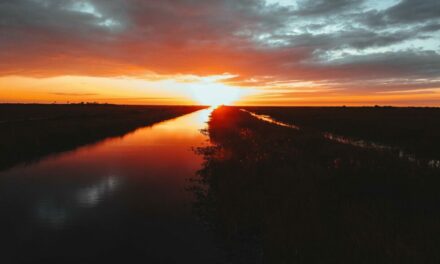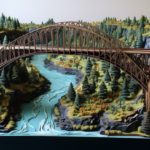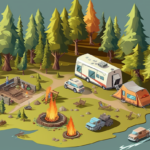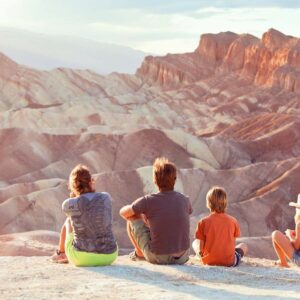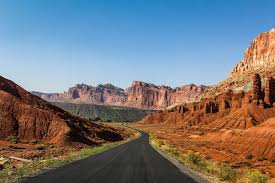Camping can be a fun experience, except when you get hurt! This is especially true when you are not near more comfortable facilities to treat a wound or clean up scrapes.
Therefore, you should do what you can to create a safe haven around your campsite. Camping safety can be an exhaustive subject so let’s just stick to the area around where you eat and sleep.
1. Campfires – Look for a metal ring or ring of rocks that most campground have at each site. This is the area in which to contain your campfire to ensure it does not spread to the neighboring areas.
If you must create your own area, dig a small pit away from trees with overhanging branches and line the pit with rocks. Store extra firewood upwind away from the fire to avoid sparks and keep a bucket of water handy in case you have to douse the flames.
Never leave a campfire unattended as accidents can happen. Children could be playing nearby, trip and fall into the flames. Or, wind could pick up carrying hot embers where they could ignite leaves or debris nearby.
2. Sleeping arrangements – Sometimes camping hammocks are used during warmer months and strung between two trees or immovable objects.
Clear debris from the area around the hammock should you accidentally fall out of it in the middle of the night or stumble around for a bathroom. Rocks could leave bruises and sticks could poke or even penetrate skin if you landed on them wrong.
3. Food – If the area in which you camp is known for its wildlife, you will want to secure your food items in sealable plastic bags and containers so no odors can be detected. Store the food if possible in your vehicle or closed area that would be impervious to ingenious wildlife like raccoons with dexterous paws.
If you use coolers that must stay outdoors, choose coolers made from sturdy materials and use straps with locks on them to prevent an animal tearing into the cooler.
4. Critters – Before setting up camp, inspect the entire area looking for infestations of ants, wasps, bees and any other critters that can cause problems. Sometimes bees and wasps have nests in the ground.
5. Getting lost – Despite all precautions and lectures, sometimes kids and even adults ends up wandering around and exploring. If everyone wears a whistle, it can be blown if someone gets lost. Whistles can be heard from a farther distance than a shout.




